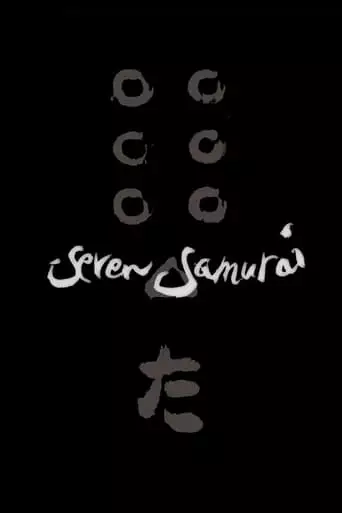
Seven Samurai (1954) Watch Online Free
A samurai answers a village’s request for protection after he falls on hard times. The town needs protection from bandits, so the samurai gathers six others to help him teach the people how to defend themselves, and the villagers provide the soldiers with food.
Plot Overview: “Seven Samurai,” directed by Akira Kurosawa, is set in 16th-century Japan during the Warring States period. A small village is under threat from a group of marauding bandits who plan to return and steal the crops after the harvest. In desperation, the villagers hire a group of seven samurai warriors to protect them. The samurai, led by the wise and battle-hardened Kambei (played by Takashi Shimura), prepare the village for the impending attack. Along with Kambei, the samurai group consists of various individuals with distinct personalities, including the impetuous Kikuchiyo (Toshiro Mifune), who was born a peasant but desires to become a samurai. As the bandits approach, the samurai and villagers unite in a brutal struggle to defend their homes.
Themes:
Analysis: “Seven Samurai” is widely regarded as one of the greatest films in cinematic history due to its groundbreaking use of action sequences, character development, and storytelling. Kurosawa employs a variety of techniques to enhance the narrative, such as deep focus cinematography, which allows for the simultaneous depiction of actions in the foreground and background. The film’s pacing is carefully crafted, with the first half of the movie focusing on the preparation for battle and character development, while the second half presents the fierce battle between the samurai and the bandits. The film’s influence on both Eastern and Western cinema is immense, with many films, such as “The Magnificent Seven” (1960), taking inspiration from it.
10 Reasons to Watch “Seven Samurai”:
What Will You Feel After Watching?
After watching “Seven Samurai,” you will likely experience a profound mixture of emotions. The film’s portrayal of noble sacrifice may leave you feeling inspired by the samurai’s sense of duty and the nobility of their actions. However, the inevitability of their losses might evoke a sense of melancholy, as the heroes’ ultimate fate highlights the high cost of their actions.
You may also feel admiration for the way Kurosawa humanizes his characters, presenting them as flawed yet deeply honorable individuals. The camaraderie among the samurai and their interactions with the villagers create a sense of hope and unity, despite the dire circumstances. At the same time, the film’s exploration of the futility of violence may leave you with a lingering sadness, recognizing the cycles of destruction that come with war.
“Seven Samurai” is a film that resonates on multiple levels. Its action will excite, its characters will move you, and its themes will leave you reflecting on the nature of sacrifice, duty, and honor long after the credits roll.
In Conclusion: “Seven Samurai” is not just a great action film—it is a profound meditation on human nature, society, and the costs of war. Its technical brilliance, compelling characters, and exploration of timeless themes make it essential viewing. Whether you are a fan of classic cinema, action films, or philosophical reflections on humanity, “Seven Samurai” promises to offer a deeply engaging and emotionally resonant experience.
